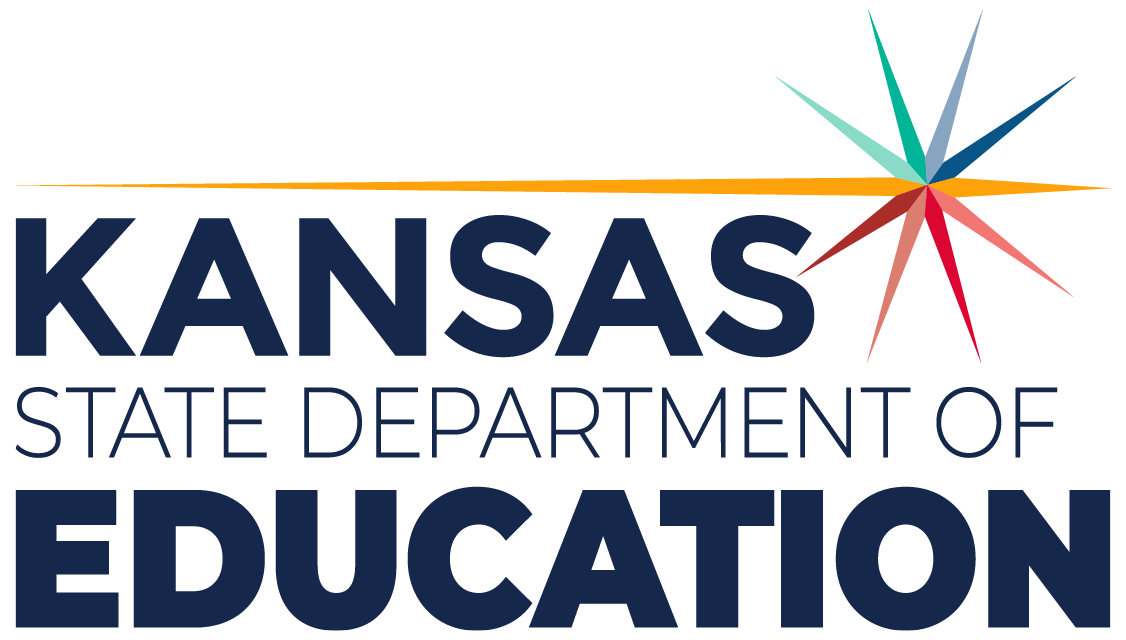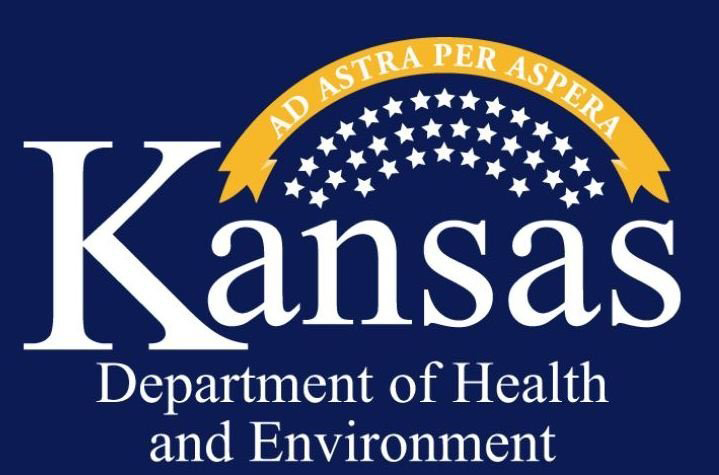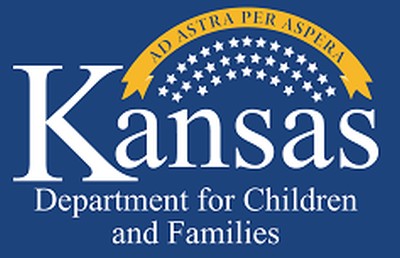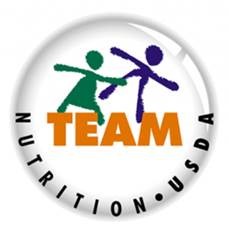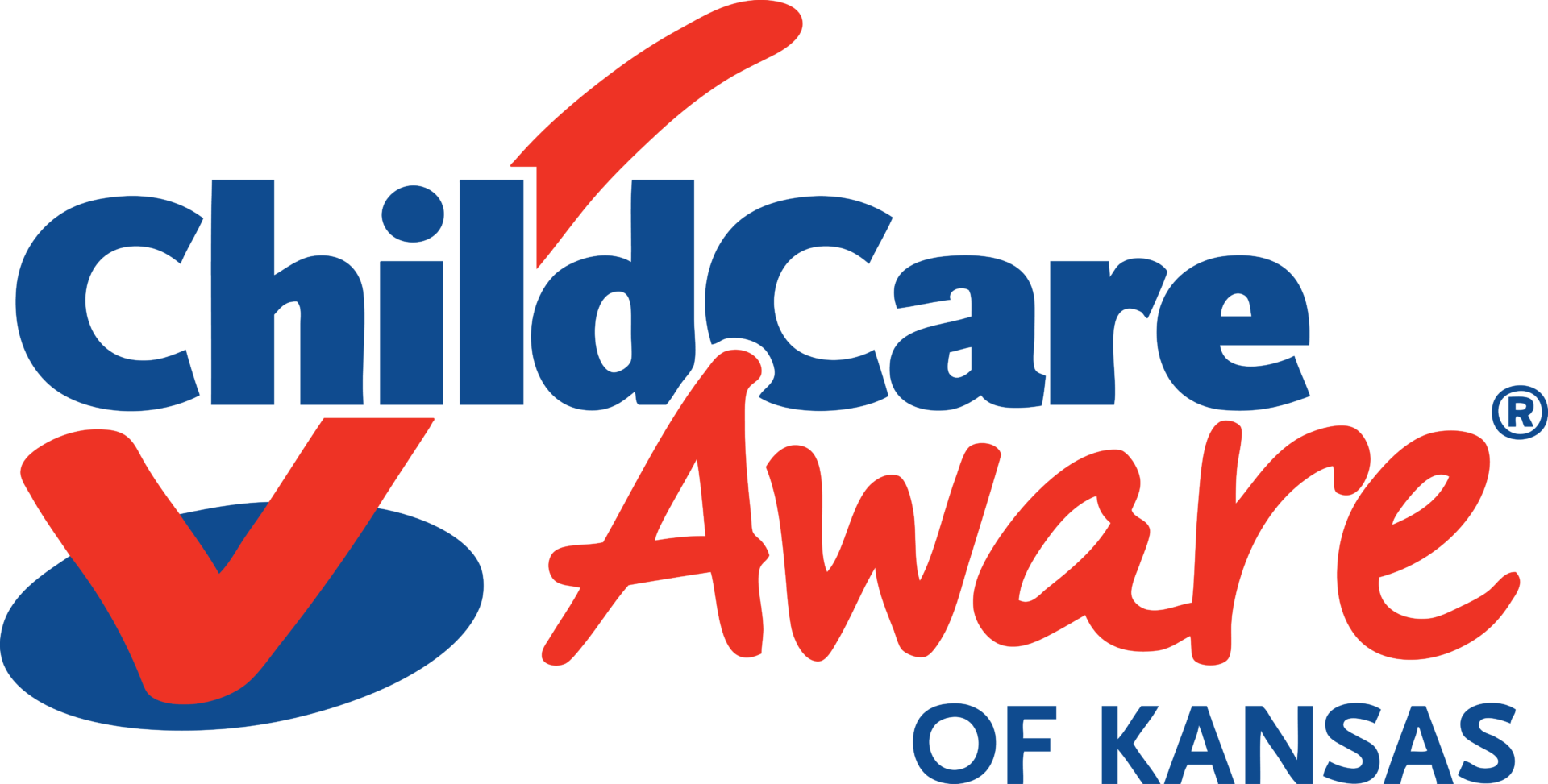Our Mission
Child Nutrition & Wellness provides leadership, information, training, technical assistance, and monitoring for local agencies operating child nutrition and wellness programs. Our goal is to enhance each program sponsor's ability to provide quality nutrition and wellness programs for all Kansas children.
School Nutrition Programs (SNP) Information
Kansas school sponsors that participate in the lunch program receive reimbursement from USDA for each meal served to eligible students. In return, they must serve lunches that meet federal requirements, and offer reduced price and free lunches to eligible students.
To meet USDA nutrition requirements, local sponsors choose the menus and use Nutrition Standards for School Meals, a food-based preparation method. Regulations establish a standard for school lunches to provide one-third (1/3) of the Recommended Daily Allowances (RDA) of protein, vitamin A, vitamin C, iron, calcium, and calories.
For more information about menu planning, refer to Food Service Facts, Chapter 16.
Any student enrolled in a participating school and in the building at the time of lunch service, may purchase a meal through the National School Lunch Program (NSLP). Students from households with incomes at or below 130 percent of the federal poverty level are eligible for free lunches. Those between 130 percent and 185 percent of the poverty level are eligible for reduced price lunches, for which students can be charged no more than 40 cents. Students from households with incomes over 185 percent of the poverty level pay full price, though their lunches are still subsidized with federal and state funds. Local sponsors set their own prices for full price lunches. View current reimbursement rates.
Public schools and non-profit private schools of high school grade or under are eligible to participate in the NSLP. Residential Child Care Institutions (RCCIs) are also eligible. In Kansas nearly 1,700 schools and RCCIs participate in the NSLP.
Over 63,000 children in more than 1,400 Kansas schools start each school day with a nutritious school breakfast. The School Breakfast Program (SBP) is a federal program that provides states with cash assistance for non-profit breakfast programs in schools and RCCIs. Participating schools and institutions must serve breakfasts that meet federal nutrition standards and must provide reduced price and free breakfasts to eligible children. The same Income Eligibility Guidelines apply for the SBP as were described in the previous section for the National School Lunch Program. Schools that serve a high percentage of lunches to students eligible for reduced price or free meals may be eligible for higher reimbursements through the Severe Need Breakfast reimbursement option. View current reimbursement rates. Refer to Food Service Facts, Chapter 25 for additional information.
Public schools in Kansas are required to offer the SBP in each public school building under the jurisdiction of the school district's board of education. Kansas law allows public school sponsors to apply for SBP waivers for individual attendance centers, if the attendance center has 35% or less of its enrolled students eligible for reduced price or free meals during March of the preceding year. The KSDE appoints a committee to evaluate the waiver applications, determine the validity of the reason(s) for which a waiver is requested, and recommend to the Kansas State Board of Education (KSBE) whether to grant or deny the waiver request. The KSBE evaluates the committee's recommendations and makes the final decision to approve or deny the request.
Teachers have reported students are more alert and perform better in class if they eat breakfast. Studies support that conclusion. Recognizing the importance of a nutritious breakfast, USDA has actively promoted the SBP, and at the same time has made a commitment to improve the nutritional quality of all school meals. Regulations require that all school breakfasts meet the recommendations of the Dietary Guidelines for Americans. In addition, breakfasts must provide one-fourth (1/4) of the daily recommended levels for protein, calcium, iron, vitamin A, vitamin C and calories.
For more information about the School Breakfast Program, refer to Food Service Facts, Chapter 25.
The goal of the FFVP is to create healthier school environments by providing healthier food choices, expand the variety of fruits and vegetables children experience, increase children's fruit and vegetable consumption, and make a difference in children's diets to impact their present and future health. Grantee schools receive reimbursement for the cost of making free fresh fruits and vegetables available to students during the school day. These fresh fruits and vegetables must be provided separately from the lunch or breakfast meal, in one or more areas of the school during the official school day.
For further information, refer to Food Service Facts, Chapter 17.
Child & Adult Care Food Program (CACFP) Information
CACFP facilities follow the meal patterns established by the U.S. Department of Agriculture (USDA).
- Breakfast requires a serving of milk, fruit or vegetable and bread or grain product.
- Lunch and dinner consist of milk, bread or grain product, meat or meat alternate, and two different servings of fruits and/or vegetables.
- Snacks include servings from two or the four components: milk, fruits or vegetables, bread or grain product, or meat or meat alternate.
- Children age 12 and under
- Migrant children age 15 and younger
- Youths through age 18 in the Area Eligible Snack Program and in emergency shelters
- Functionally impaired children through age 18 in child care centers or day care homes.
- Functionally impaired adult participants or adults age 60 and older enrolled in an adult day care center
- Child care centers serving meals and snacks to children who are enrolled for care
- Head Start Programs serving meals and snacks to enrolled children
- After school care sites providing programming and snacks for low-income school age children and youth.
- Emergency shelters providing temporary residence and food service to children
- Adult day care centers providing structured, comprehensive services to nonresident adults who are functionally impaired and/or 60 years of age or older
- Licensed or registered family or group day care homes participating under a KSDE-approved sponsoring organization. The 20 sponsoring organizations in Kansas play a critical role in supporting home child care providers through training, technical assistance and monitoring.
To be eligible to participate in the CACFP a center must:
- Be a public entity, or
- Have tax-exempt status under the Internal Revenue Code of 1986, or
- Meet the requirements for a for-profit center. For-profit child care centers are eligible if 25% or more of enrolled participants or 25% of the licensed capacity are receiving child care subsidies or are low-income children. For-profit adult day care centers are eligible if the center meets the 25% rule with Medicaid beneficiaries.
In addition, a child care center must be licensed by the Kansas Department of Health and Environment (KDHE). An adult care center must be licensed appropriately for the care of non-residential adults. Emergency shelters and domestic violence shelters must have health and safety inspection certificates.
To be eligible to participate in the CACFP, a day care home must be licensed by KDHE and sign a provider agreement with a sponsoring organization.
CACFP partially reimburses participating centers for serving nutritious meals. The program is administered at the federal level by the Food and Nutrition Service of the U.S. Department of Agriculture.
Child Nutrition & Wellness at the Kansas State Department of Education (KSDE) administers the CACFP in Kansas. Child Nutrition & Wellness approves independent centers and sponsoring organizations to operate the program at the local level. KSDE also monitors the program and provides training and assistance to ensure successful participation in the CACFP.
Summer Food Service Program (SFSP) Information
The Food and Nutrition Service, an agency of the U.S. Department of Agriculture, administers SFSP at the Federal level. State education agencies administer the program in most States. In some areas, the State health or social service department or an FNS regional office may be designated.
Locally, SFSP is run by approved sponsors, including school districts, local government agencies, camps, or private nonprofit organizations. Sponsors provide free meals to a group of children at a central site, such as a school or a community center. They receive payments from USDA, through their State agencies, for the meals they serve to children at eligible sites.
USDA Nondiscrimination Statement
In accordance with federal civil rights law and U.S. Department of Agriculture (USDA) civil rights regulations and policies, this institution is prohibited from discriminating on the basis of race, color, national origin, sex (including gender identity and sexual orientation), disability, age, or reprisal or retaliation for prior civil rights activity.
Program information may be made available in languages other than English. Persons with disabilities who require alternative means of communication to obtain program information (e.g., Braille, large print, audiotape, American Sign Language), should contact the responsible state or local agency that administers the program or USDA’s TARGET Center at (202) 720-2600 (voice and TTY) or contact USDA through the Federal Relay Service at (800) 877-8339.
To file a program discrimination complaint, a Complainant should complete a Form AD-3027, USDA Program Discrimination Complaint Form which can be obtained online at: https://www.usda.gov/sites/default/files/documents/ad-3027.pdf, from any USDA office, by calling (866) 632-9992, or by writing a letter addressed to USDA. The letter must contain the complainant’s name, address, telephone number, and a written description of the alleged discriminatory action in sufficient detail to inform the Assistant Secretary for Civil Rights (ASCR) about the nature and date of an alleged civil rights violation. The completed AD-3027 form or letter must be submitted to USDA by:
(1) mail
U.S. Department of Agriculture
Office of the Assistant Secretary for Civil Rights
1400 Independence Avenue, SW
Washington, D.C. 20250-9410; or
(2) fax:
(833) 256-1665 or (202) 690-7442; or
(3) email:
program.intake@usda.gov
This institution is an equal opportunity provider.
USDA Nondiscrimination Statement - Spanish Translation
De acuerdo con la ley federal de derechos civiles y las normas y políticas de derechos civiles del Departamento de Agricultura de los Estados Unidos (USDA), esta entidad está prohibida de discriminar por motivos de raza, color, origen nacional, sexo (incluyendo identidad de género y orientación sexual), discapacidad, edad, o represalia o retorsión por actividades previas de derechos civiles.
La información sobre el programa puede estar disponible en otros idiomas que no sean el inglés. Las personas con discapacidades que requieren medios alternos de comunicación para obtener la información del programa (por ejemplo, Braille, letra grande, cinta de audio, lenguaje de señas americano (ASL), etc.) deben comunicarse con la agencia local o estatal responsable de administrar el programa o con el Centro TARGET del USDA al (202) 720-2600 (voz y TTY) o comuníquese con el USDA a través del Servicio Federal de Retransmisión al (800) 877-8339.
Para presentar una queja por discriminación en el programa, el reclamante debe llenar un formulario AD-3027, formulario de queja por discriminación en el programa del USDA, el cual puede obtenerse en línea en: https://www.usda.gov/sites/default/files/documents/ad-3027s.pdf, de cualquier oficina de USDA, llamando al (866) 632-9992, o escribiendo una carta dirigida a USDA. La carta debe contener el nombre del demandante, la dirección, el número de teléfono y una descripción escrita de la acción discriminatoria alegada con suficiente detalle para informar al Subsecretario de Derechos Civiles (ASCR) sobre la naturaleza y fecha de una presunta violación de derechos civiles. El formulario AD-3027 completado o la carta debe presentarse a USDA por:
(1) correo:
U.S. Department of Agriculture
Office of the Assistant Secretary for Civil Rights
1400 Independence Avenue, SW
Washington, D.C. 20250-9410; or
(2) fax:
(833) 256-1665 o (202) 690-7442; o
(3) correo electrónico:
program.intake@usda.gov
Esta entidad es un proveedor que brinda igualdad de oportunidades.
